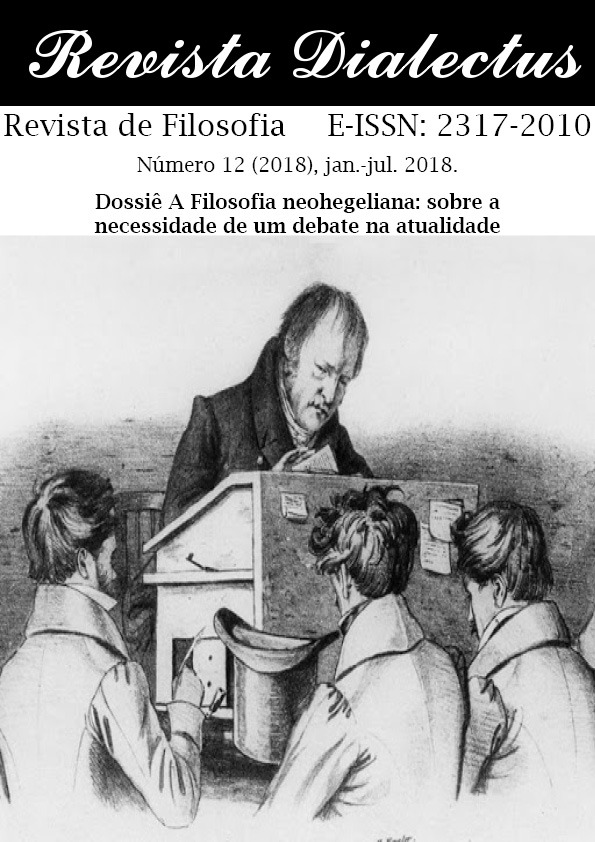LUDWIG FEUERBACH: L’UOMO E LA SUA ALIMENTAZIONE
DOI:
https://doi.org/10.30611/2018n12id33204Abstract
Nel 2015 si è svolto a Milano l’Expo, una manifestazione fieristica dal titolo “Nutrire il pianeta. Energia per la vita” che in 184 giorni e con 145 nazioni partecipanti, fra cui ovviamente il Brasile, ha avuto 21 milioni di visitatori. Sull’onda di questo evento è tornato di attualità il celebre motto di Feuerbach: «L’uomo è (ist) ciò che mangia (isst)». Nella lingua tedesca l’assonanza fra le terze persone del verbo essere e del verbo mangiare è evidente e suggerisce una stretta relazione fra essere e mangiare. Non a caso i critici dell’epoca vi videro un’espressione di rozzo materialismo, che poteva essere avvicinata alla frase di Karl Vogt: «I pensieri stanno press’a poco nel medesimo rapporto col cervello, come la bile al fegato o l’urina alle reni». Vogt era ben consapevole di usare un’espressione «in un certo senso rozza», ma intendeva dire che «tutte le attività psichiche» erano «solo funzioni della sostanza cerebrale» [...]Downloads
Published
2018-07-30
Issue
Section
Dossiê A Filosofia Neohegeliana: Sobre a Necessidade de um Debate na Atualidade
License
Authors who publish in this journal agree to the following terms:
- Authors retain the copyright and grant the journal the right of first publication, with the work simultaneously licensed under the Attribution-NonCommercial-NoDerivatives 4.0 International (CC BY-NC-ND 4.0) License, which allows the non-commercial sharing of work, without modifications and with acknowledgment of authorship and initial publication in this journal.
- Authors are authorized to take additional contracts separately, for non-exclusive distribution of the version of the work published in this journal (eg publish in institutional repository or as a book chapter), with acknowledgment of authorship and initial publication in this journal.
- Authors are allowed and encouraged to publish and distribute their work online (eg in institutional repositories or on their personal page) at any point before or during the editorial process, as this can generate productive changes as well as increase the impact and citation of published work (See The Free Access Effect).



















